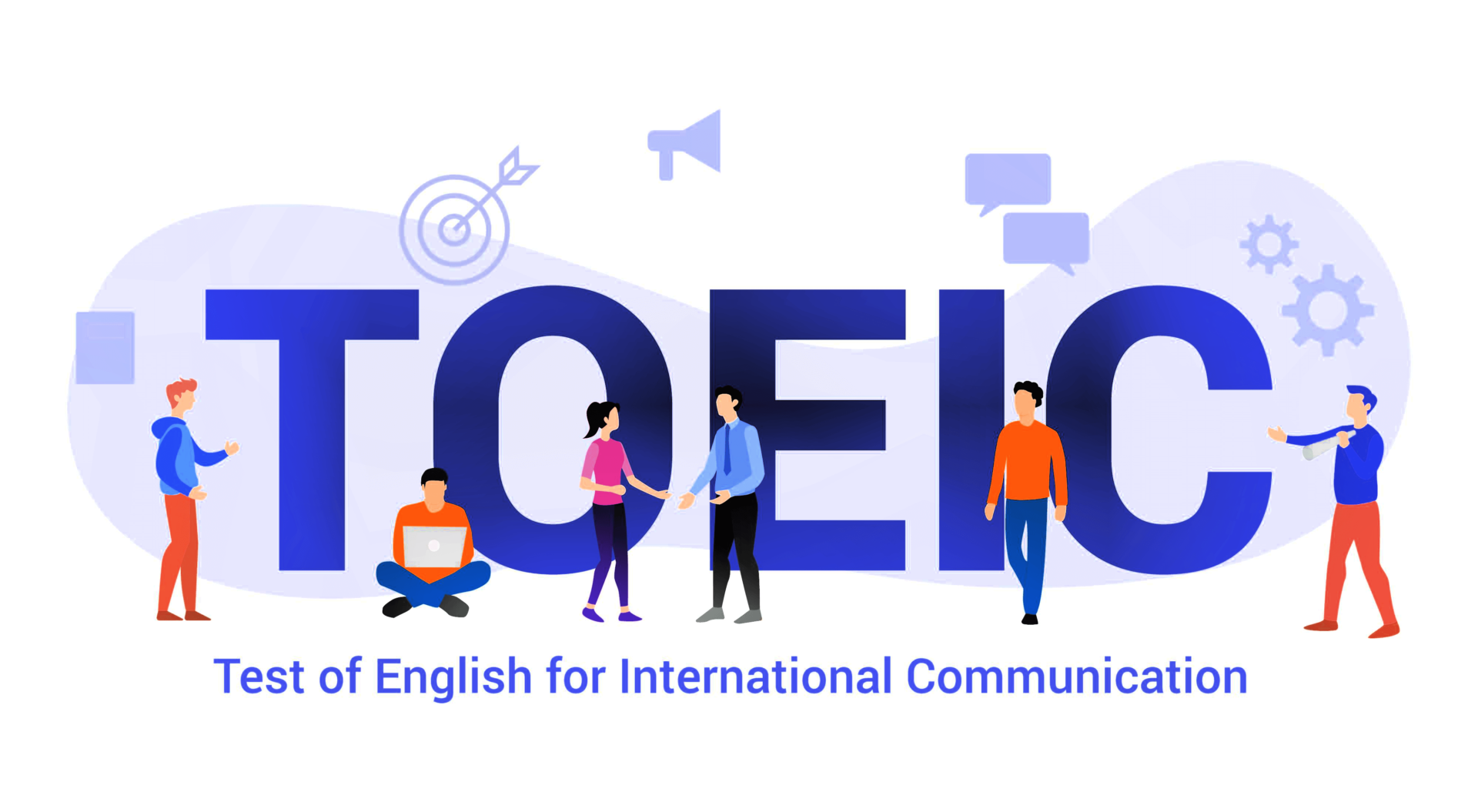
TOEIC
The Test of English for International Communication (TOEIC) stands as a testament to linguistic proficiency in the realm of global communication. Developed by ETS, the same organization behind TOEFL, TOEIC is specifically designed to evaluate individuals’ English language skills in a professional and workplace context. With a focus on practical language use, TOEIC assesses the ability to understand and communicate effectively in English within international business and professional settings.
TOEIC encompasses two main modules: the TOEIC Listening and Reading Test and the TOEIC Speaking and Writing Test. The Listening and Reading Test evaluates comprehension skills through listening to spoken conversations and reading various texts. The Speaking and Writing Test gauges oral expression and written communication abilities. The modularity allows individuals to take one or both of the tests based on their specific language assessment needs.
One of the distinguishing features of TOEIC is its scoring mechanism, which provides a clear and standardized indication of language proficiency. Scores on the TOEIC scale range from 10 to 990, with separate scores for the Listening and Reading sections. The granularity of these scores enables institutions and employers to make precise decisions regarding language requirements for different positions and opportunities.
What makes TOEIC invaluable is its application in the corporate and professional landscape. Many multinational corporations and institutions incorporate TOEIC scores into their recruitment processes, promotions, and training initiatives. TOEIC scores serve as an objective measure of English language ability, facilitating effective communication and collaboration in global work environments.
TOEIC’s emphasis on practical language skills, business terminology, and real-world communication scenarios makes it an indispensable tool for individuals aiming to enhance their employability in an increasingly interconnected world. By focusing on language skills relevant to the workplace, TOEIC empowers individuals to confidently navigate international business landscapes and bridge linguistic gaps in cross-cultural interactions. As an essential marker of global communication readiness, TOEIC opens doors to career advancement, professional growth, and success on the international stage.
Have Questions? Look Here
TOEIC (Test of English for International Communication) is an English language proficiency test designed to assess individuals’ English language skills in a workplace context.
TOEIC scores are accepted by businesses, organizations, and institutions around the world as a measure of English language proficiency for professional communication.
TOEIC scores are typically reported on a scale of 10 to 990, with separate scores for the Listening and Reading sections.
The TOEIC test consists of two sections: Listening and Reading.
The Listening section involves listening to recorded conversations and talks and answering questions based on the content.
The Reading section requires reading passages and answering questions about the information presented.
You can prepare by practicing with official TOEIC sample questions, using study materials, and taking practice tests.
There is no official passing score for TOEIC. Scores are interpreted based on the requirements of the institutions or organizations.
Bring a valid ID with your name, photo, and signature. Also, bring your test confirmation and any items specified in the test instructions.
TOEIC scores are typically available within a week after the test.
TOEIC scores are reported as scaled scores for the Listening and Reading sections.
TOEIC scores are generally valid for two years from the test date.
Yes, you can retake the TOEIC test as many times as you wish.
You can retake the TOEIC test as soon as there is an available test date. Check the testing schedule.
You can request your TOEIC scores to be sent directly to institutions when you register for the test or afterward.
Some institutions may charge a fee for receiving your TOEIC scores. Check with the institutions for their policies.
Ready to Take the Next Step? Contact Us Today!
Request a Consultation


